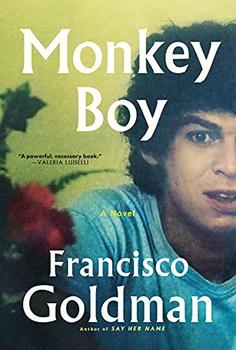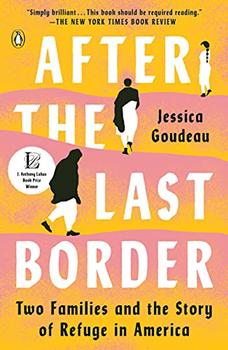Summary | Excerpt | Reading Guide | Reviews | Beyond the book | Read-Alikes | Genres & Themes | Author Bio

From the Pulitzer Prize-winning author of Disgraced and American Dervish: an immigrant father and his son search for belonging -- in post-Trump America, and with each other.
A deeply personal work about identity and belonging in a nation coming apart at the seams, Homeland Elegies blends fact and fiction to tell an epic story of longing and dispossession in the world that 9/11 made. Part family drama, part social essay, part picaresque novel, at its heart it is the story of a father, a son, and the country they both call home.
Ayad Akhtar forges a new narrative voice to capture a country in which debt has ruined countless lives and the gods of finance rule, where immigrants live in fear, and where the nation's unhealed wounds wreak havoc around the world. Akhtar attempts to make sense of it all through the lens of a story about one family, from a heartland town in America to palatial suites in Central Europe to guerrilla lookouts in the mountains of Afghanistan, and spares no one -- least of all himself -- in the process.
Through stories of not only his father but many individuals, the author attempts to portray the American experience as a whole. Like a literary Cubist, he draws upon the perspectives of both insiders and outsiders, showing a panoptic vision that brings us closer to understanding the nation's true form. Though telling stories of the past, Homeland Elegies ties itself to the present through the figure of Donald Trump. Trump looms throughout, an ominous specter in the book's peripheral vision, foreshadowing a future in which we all now live. However, it is not Trump that Akhtar is interested in — rather, it is the casualties of the system that made his election possible...continued
Full Review
(642 words)
This review is available to non-members for a limited time. For full access,
become a member today.
(Reviewed by Grace Graham-Taylor).
 In Homeland Elegies, author Ayad Akhtar explores Pakistani characters' relationships to Islam. The roots of Islam in the area now known as Pakistan can be traced back almost as far as the birth of the religion itself. As early as the 7th century, Arab armies attempted to spread Islam to the Indian subcontinent, but it took centuries for it to establish a true presence there.
In Homeland Elegies, author Ayad Akhtar explores Pakistani characters' relationships to Islam. The roots of Islam in the area now known as Pakistan can be traced back almost as far as the birth of the religion itself. As early as the 7th century, Arab armies attempted to spread Islam to the Indian subcontinent, but it took centuries for it to establish a true presence there.
At the time Arab forces began their conquests, the region that makes up present-day Pakistan was in a period of political instability. Invading nomadic groups, along with warfare between the Persians (who controlled large portions of territory) and the Byzantines, had made the area unsafe and disrupted trade routes. In addition, some parts of the region were ...
This "beyond the book" feature is available to non-members for a limited time. Join today for full access.

If you liked Homeland Elegies, try these:

by Francisco Goldman
Published 2022
Francisco Goldman's first novel since his acclaimed, nationally bestselling Say Her Name (winner of the Prix Femina étranger), Monkey Boy is a sweeping story about the impact of divided identity - whether Jewish/Catholic, white/brown, native/expat - and one misfit's quest to heal his damaged past and find love.

by Jessica Goudeau
Published 2021
The story of two refugee families and their hope and resilience as they fight to survive and belong in America.
Heaven has no rage like love to hatred turned, Nor hell a fury like a woman scorned.
Click Here to find out who said this, as well as discovering other famous literary quotes!